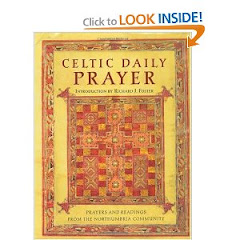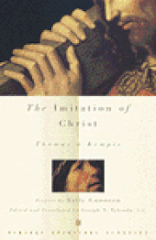If I say, “Surely the darkness will hide me
and the light become night around me,”
even the darkness will not be dark to you;
the night will shine like the day,
for darkness is as light to you. Psalm 139:11-12
and the light become night around me,”
even the darkness will not be dark to you;
the night will shine like the day,
for darkness is as light to you. Psalm 139:11-12
Jesus experienced the extreme of dereliction. Pronouncing on
the cross the first words of the psalm, 'My God, my God, why have you deserted
me?' Jesus wants to express the meaning of the whole psalm.
But how can we fail to see that this psalmody of Jesus on
the cross is the expression, once more, of a temptation overcome, of a despair
outrun? Faith, trust, hope are not natural to humanity: religion, law,
sentence, are. But to reveal, in the very heart of failure and at the hour of
death, amid human clamour and the silence of God, that God is Love, is that not
the true, intense and free acknowledging of God? And is it not a turning of the
back, in manner more victorious than any other, on the temptation of unbelief?
Evil, wretchedness and failure are, in effect, the first grounds of unbelief
and this is understandable: how can one not curse God and despair when evil is
there - period - and heaven seems empty? Jesus overcame this temptation.
The cry that Jesus uttered on the cross - 'a loud voice'
says the Scripture - must not be romanticized but, rather, taken in its precise
texture.
Therese of Lisieux underwent profound changes in her
experience of faith during the Easter of 1896: Before that time she thought
that atheism was a flaunted position, a sham, ‘I could not believe that there
really were godless people who had no faith at all: it was only by being false
to their own inner convictions that someone could deny the existence of
heaven.'
Finally, her eyes
were opened to realize that unbelievers really exist. She experiences the sense
of the darkness, such impenetrable darkness, a darkness which cannot recognize
the King of Light. 'But here I am, Lord, to whom Your divine light has made
itself known.' She finds herself in a situation which seems absurdly
contradictory. She does not cease to participate in the light of the faith and
at the same time she participates in the darkness in which unbelievers live.
She is immersed in suffering never experienced previously and in joy greater
than she ever felt before. She thinks that if Jesus has made her see the
reality of unbelief and has made her participate in the night of unbelief, it
is only so that she may turn the tables: so that she may live this state of
darkness for the sake of unbelievers themselves. And, consequently, for her it
is a new joy that she had never experienced until then - the joy of not living,
the joy of faith so that precisely these 'others', these unbelievers who do not
know this joy, might finally attain to it: 'What does it matter, that I should
catch no glimpse of heaven's beauties, here on earth, if that will help poor
sinners to see them in heaven.'
The night Therese experiences is a sharing of life with
Jesus and unbelievers at one and the same time. From the moment she recognizes
the existence of genuine unbelievers she reckons herself as their companion.
'Lord, one of Your own children, to whom Your divine light
has made itself known ... by way of asking pardon for these brothers of mine, I
am ready to live on a starvation diet as long as You will have it so.' Her
concern is to remain with those who eat the bread of unbelief: she does not
want to 'rise from this appetizing meal'. She is prepared, she says, to remain
there as the last one until 'all those who have no torch of faith to guide them
catch sight, at least, of its rays.'
This manner of sharing the bread of unbelief is at the same
time a manner of breaking bread with Jesus, of sharing the Eucharistic table:
for it is Jesus who has led her to this table of unbelievers. Of this she is
certain. For Therese, the perfect joy is to find herself among unbelievers and,
eating at their table, to be shaken by their questions while remaining in the
faith.
‘I find it difficult to believe in the existence of anything
except the clouds which limit my horizon. It is only then that I realize the
possibilities of my weakness; find consolation in staying at my post, and
directing my gaze towards one invisible light which communicates itself, now,
only in the eye of faith.'
The more a human being advances in the Christian faith, the
more they live the presence of God as an absence, the more they accept to die
to the idea of becoming aware of God, of fathoming Him. For they have learned,
while advancing, that God is unfathomable. And from then on the presence of God
assumes value in their eyes only against the backdrop of absence. The mystic,
in his long and complicated pilgrimage, experiences alternately the presence
and absence of God. But, by degrees, the absence of God is felt more and more
and the mystic understands that this absence is now the norm. Thus the mystic
is someone who has had a long-term confrontation with God, like Jacob in the
struggle that he waged all through the night, someone who does not cease to
confront God. God always precedes us, we see Him only from behind, He walks
ahead, He is ahead of us. What the mystic experiences - and every Christian is
a mystic because it is not the great illuminations that are the mark of the mystic
but the night, an everyday night - is a kind of distancing from God in
proportion to advances in the deepening of their faith.
Jean Francois Six as
cited in Celtic Daily Prayer
And yet, somehow, His Spirit seems always to be present . .
. it is a mystery.
A mystery also expressed in these poems:










No comments:
Post a Comment